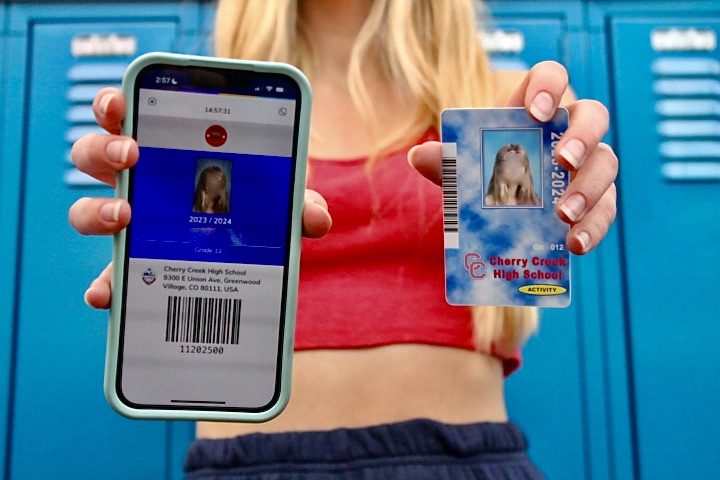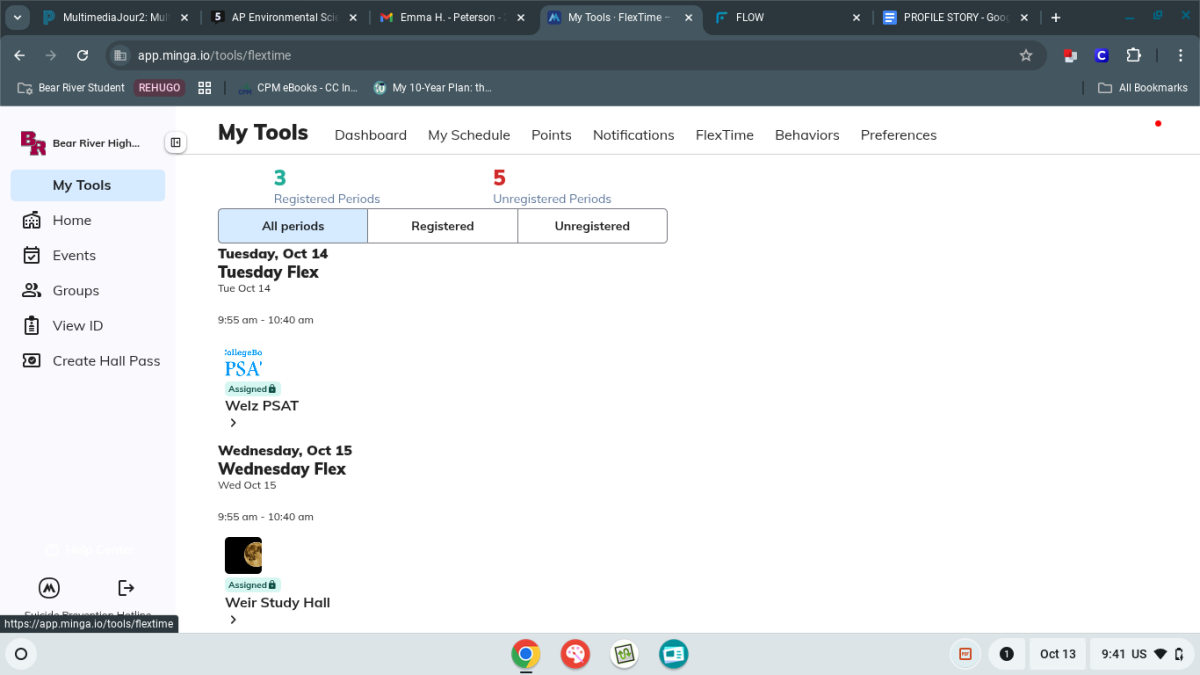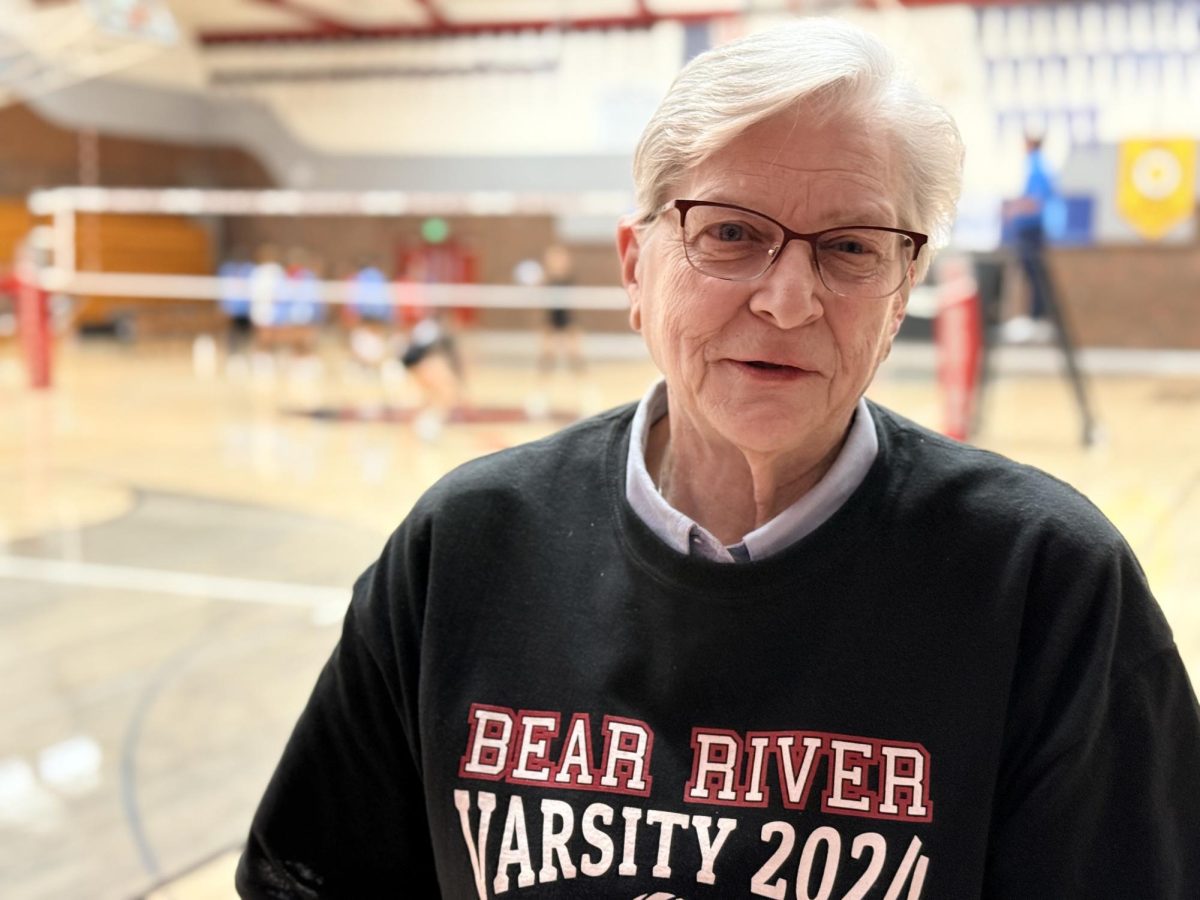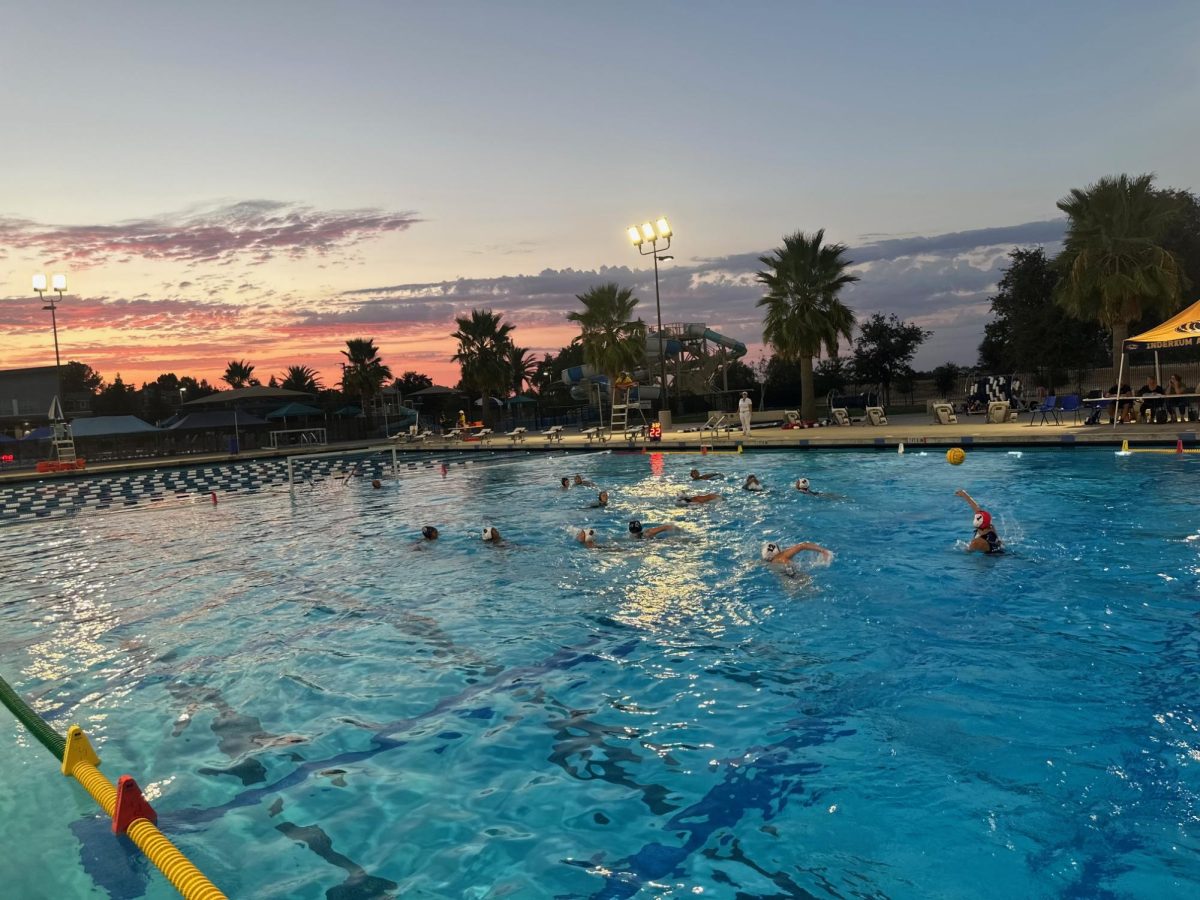This school year, Bear River High students and staff are adjusting to two big shifts in how Flex Time is managed: the move from FlexiSched to Minga Flex, and a possible schedule change that could place Flex at the end of the school day.
The transition to Minga has not been without challenges. FlexiSched, the school’s previous platform, was created specifically for Flex scheduling. By contrast, Minga was originally designed for hall passes and behavior management, with Flex scheduling added later as an extra feature.
“With any new program or initiative, there are growing pains for sure,” Chris Roberts, the principal of Bear River High, said. “As we get to know Minga — what it’s capable of and what it’s not capable of — we’re having an easier time managing Flex Time.”
The district’s decision to combine systems was motivated by both efficiency and cost savings.
“The district’s thinking was that we were already using Minga for hall passes and behavior, so having one platform instead of two not only made things simpler but also saved money,” Roberts explained.
While the system rollout was bumpy, staff say improvements have been made thanks to feedback and collaboration.
“Things started out rocky, but through (Nancy) Smith’s hard work and suggestions to Minga, the system has definitely improved,” Roberts added.
Now, the school is also revisiting when Flex Time should occur. Several years ago, Bear River had an end-of-day block called Bruin Time. Juniors and seniors with a GPA of 3.0 or higher could leave early, while other students stayed for Flex. That idea is back on the table, stirring up debate across campus.
For athletes, the benefits of an end-of-day flex are clear. Sophomore Khloe August, who plays multiple sports, said it would help balance athletics and academics.
“Moving Flex Time to the end of the day would be very helpful because if I had to leave early for a game, it wouldn’t affect my class time, or if we are taking a test,” she explained. “Missing work in class is really hard to make up. Non-athletes don’t need to worry as much about that.”
Senior swimmer Maddie Murphy agreed, noting that early departures for games often interfere with core instruction.
“It would definitely benefit me because I would be able to leave school early, which would be very nice,” she said. “We would not have to miss a lot of actual class, and instead we would just miss Flex, which would help a lot.”
Freshman Ivy Alexander, however, emphasized the productivity angle.
“It would be nice, and if I had homework throughout the day, I could work on all of it during Flex,” she said. “I would be more motivated to work at the end of the day because I can just go home afterward.”
At the same time, she voiced concerns about fairness: “I feel like it should be equal if you are responsible and keep good grades.”
Teachers are also weighing both sides. Math teacher Kara Scheitlin said moving Flex could strengthen academic time.
“Shifting flex later would protect core instructional time and reduce reteaching, which benefits both students and teachers,” she explained. But she warned of challenges: “There is a real risk that flex becomes less effective and struggling students fall further behind if accountability is weak.”
As Bear River adapts to Minga Flex and debates when flex should occur, one thing is clear: the conversation is shaping the balance between freedom, fairness, and academic responsibility on campus.




































